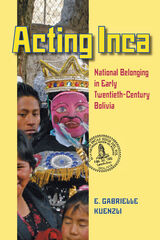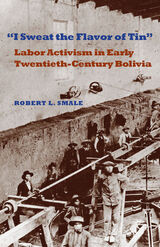
Kuenzli examines documents from the famous postwar Peñas Trial to recover Aymara testimony during what essentially became a witch hunt. She reveals that the Aymara served as both dutiful plaintiffs allied with liberals and unwitting defendants charged with wartime atrocities and instigating a race war.
To further combat their “Indian problem,” Creole liberals developed a public discourse that positioned the Inca as the only Indians worthy of national inclusion. This was justified by the Incas’ high civilization and reputation as noble conquerors, along with their current non-threatening nature. The “whitening” of Incans was a thinly veiled attempt to block the Aymara from politics, while also consolidating the power of the Liberal Party.
Kuenzli posits that despite their repression, the Aymara did not stagnate as an idle, apolitical body after the civil war. She demonstrates how the Aymara appropriated the liberal’s Indian discourse by creating theatrical productions that glorified Incan elements of the Aymara past. In this way, the Aymara were able to carve an acceptable space as “progressive Indians” in society. Kuenzli provides an extensive case study of an “Inca play” created in the Aymara town of Caracollo, which proved highly popular and helped to unify the Aymara.
As her study shows, the Amyara engaged liberal Creoles in a variety of ways at the start of the twentieth century, shaping national discourse and identity in a tradition of activism that continues to this day.

On June 4, 1923, the Bolivian military turned a machine gun on striking miners in the northern Potosí town of Uncía. The incident is remembered as Bolivia’s first massacre of industrial workers. The violence in Uncía highlights a formative period in the development of a working class who would eventually challenge the oligarchic control of the nation.
Robert L. Smale begins his study as Bolivia’s mining industry transitioned from silver to tin; specifically focusing on the region of Oruro and northern Potosí. The miners were part of a heterogeneous urban class alongside artisans, small merchants, and other laborers. Artisan mutual aid societies provided miners their first organizational models and the guidance to emancipate themselves from the mine owners’ political tutelage. During the 1910s both the Workers’ Labor Federation and the Socialist Party appeared in Oruro to spur more aggressive political action. In 1920 miners won a comprehensive contract that exceeded labor legislation debated in Congress in the years that followed. Relations between the working class and the government deteriorated soon after, leading to the 1923 massacre in Uncía. Smale ends his study with the onset of the Great Depression and premonitions of war with Paraguay—twin cataclysms that would discredit the old oligarchic order and open new horizons to the labor movement.
This period’s developments marked the entry of workers and other marginalized groups into Bolivian politics and the acquisition of new freedoms and basic rights. These events prefigure the rise of Evo Morales—a union activist born in Oruro—in the early twenty-first century.
READERS
Browse our collection.
PUBLISHERS
See BiblioVault's publisher services.
STUDENT SERVICES
Files for college accessibility offices.
UChicago Accessibility Resources
home | accessibility | search | about | contact us
BiblioVault ® 2001 - 2024
The University of Chicago Press









